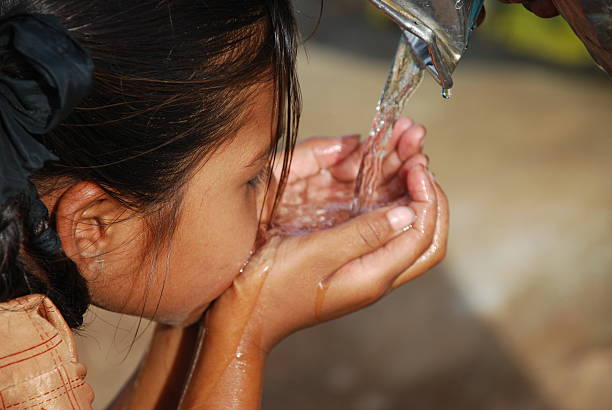The National Jal Jeevan Mission under the Ministry of Jal Shakti, has allocated Rs 3,410.61 crore grant for Gujarat under the Jal Jeevan Mission for the year 2021-22, of which, Rs 852.65 crore has been released in the first tranche, to achieve the Har Ghar Jal goal.
The Ministry of Jal Shakti approved a four-fold increase in grant allocation to the state of Gujarat for water supply. The allocation for 2019-20 by the Central Government was Rs 390.31 crore, which was increased to Rs. 883.08 crore in 2020-21.
In Gujarat, 10.94 lakh rural households received tap water connections in 2020-21, and the state plans to provide tap water connections to more than 10 lakh households in 2021-22. Gujarat has 92.92 lakh rural households, with 77.21 lakh (83 %) now having piped water supply.
In Gujarat, out of approximately 18 thousand villages, tap water supply to every household has been ensured in over 6,700 villages. In 2020-21, approximately 5,900 villages were transformed into ‘Har Ghar Jal,' with each home receiving a functional tap water connection. Every rural household in the state's five districts has access to running water.
According to the state's Annual Action Plan, which was approved by the National Jal Jeevan Mission, another 18 districts and 6,400 villages will have 100% tap water supply coverage. The National Jal Jeevan Mission is collaborating with the state governments to ensure piped water supply systems in all villages, and every household receives a priority tap water connection.
Over the next few months, it is expected that over 12 thousand villages and 23 districts in Gujarat will become Har Ghar Villages. The state government ensured tap water connections in all 29,754 rural schools and 42,279 anganwadi centres as part of the Prime Minister's 100-days campaign, which was launched on October 2, 2020, to provide tap water supply in schools, Anganwadi centres, and ashram shalas. It has also installed hand-washing stations in 98.5% of schools and approximately 91% of Anganwadi centres.
This campaign and its successful implementation have ensured that safe water is now available to our children in all learning and daycare centres, allowing for improved health, sanitation, and hygiene.
In early 2002, the Water and Sanitation Management Organisation (WASMO) was established. In each of the 17,255 villages, there are 10-15 Village Water & Sanitation Committees (VWSCs) that play an active role in the planning, implementation, management, operation, and maintenance of the water supply systems.
So far, 17,107 villages have developed 5-year Village Action Plans (VAPs) that coincide with the 15th Finance Commission grant period in order to ensure long-term water security and improved sanitation. It is a bottom-up approach in which the community plays an important role from the start.
The state has formed partnerships with non-governmental organisations (NGOs/ CBOs) and voluntary organisations to serve as Implementation Support Agencies (ISAs) to mobilise and assist the local community. At the moment, 21 such ISAs are in operation, with another 25 on the way.
This team, along with a 400-strong team of social mobilisers available through WASMO, will assist the community in preparing a village action plan, greywater management, O&M, and source strengthening, among other things.
One of the major activities planned for this year by the state government is capacity building and training. It is planned to train over 8,000 people from Pani Samiti, public health engineers, ISAs, and other organisations to ensure the operation of water supply schemes and tap water connections in every household.
Gujarat has 86 water-testing laboratories, eight of which are NABL accredited. The state intends to have all district level laboratories NABL accredited within the next few months.
The state has implemented smart water monitoring in 20 villages to improve the monitoring of tap water provided to rural households. Four pilot projects have already begun in the Dahod district. This year, the state intends to take on over 500 villages for IoT (Internet of Things) based smart water supply monitoring.
The Jal Jeevan Mission, which is being implemented in collaboration with states/UTs, is creating new job opportunities in villages and boosting the rural economy by investing more than Rs 1 lakh crore this year in the rural drinking water supply sector, including a Rs 50,000 crore budget for JJM in 2021-22, matching resources from the state, and Rs 26,940 crore from the 15th Finance Commission tied funds for water and sanitation to PRIs.
Image Source
Also read: Govt allocates Rs 5,117 cr grant to MP under Jal Jeevan Mission
Also read: Jal Jeevan Mission: Govt releases Rs 1,605 cr grant for NE states


















